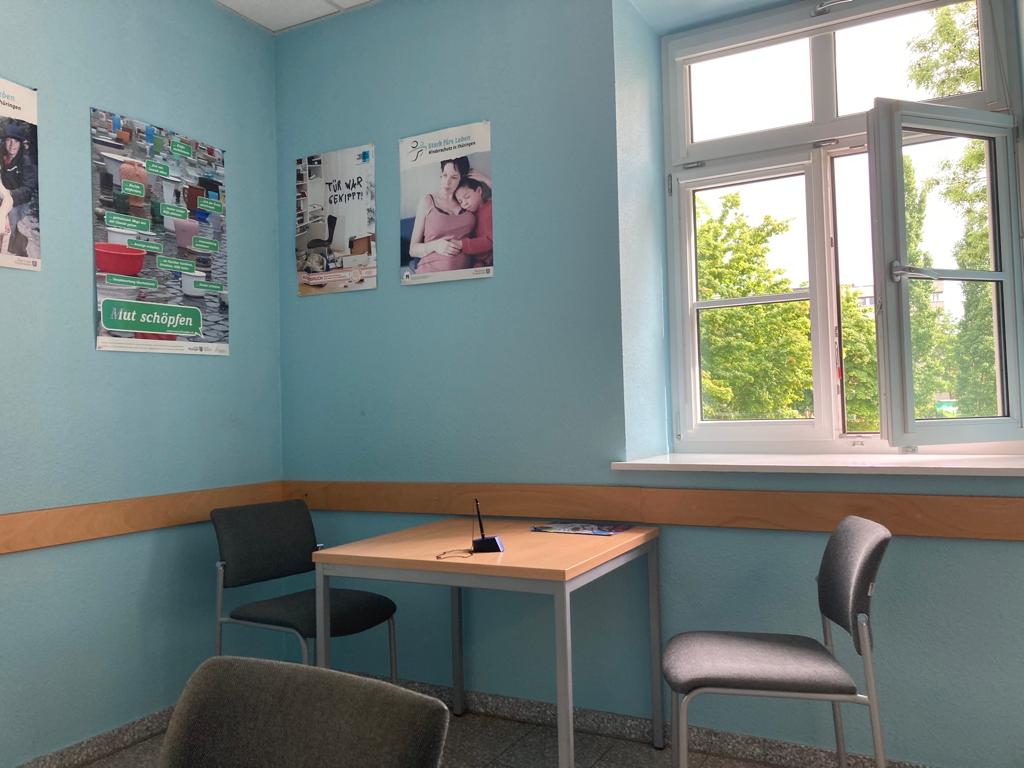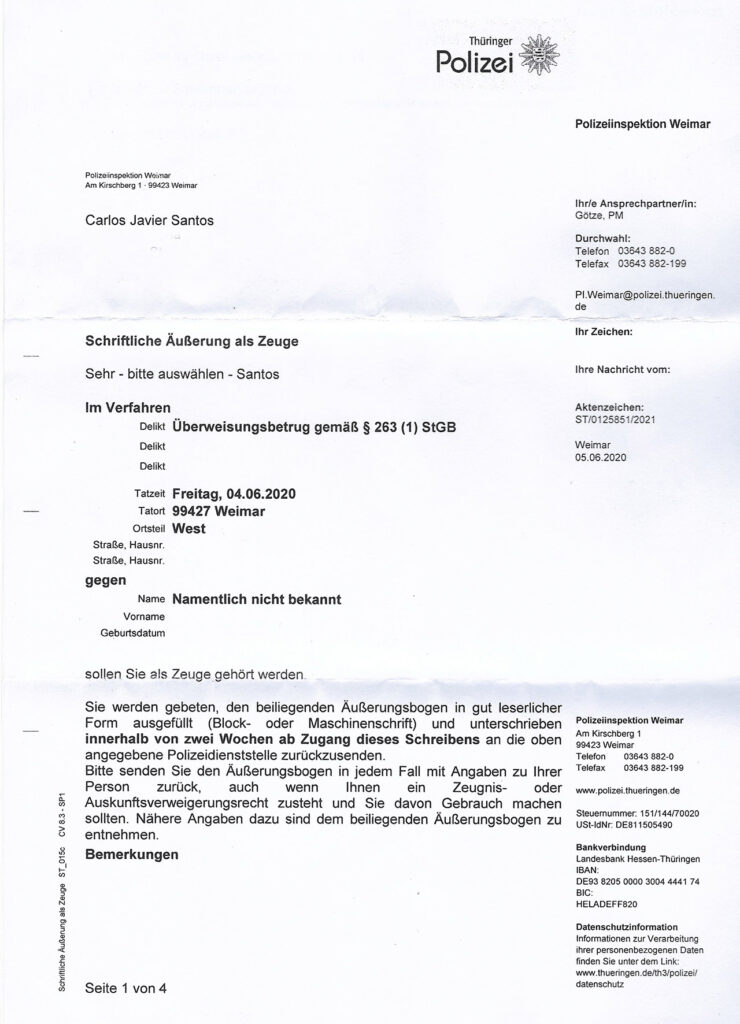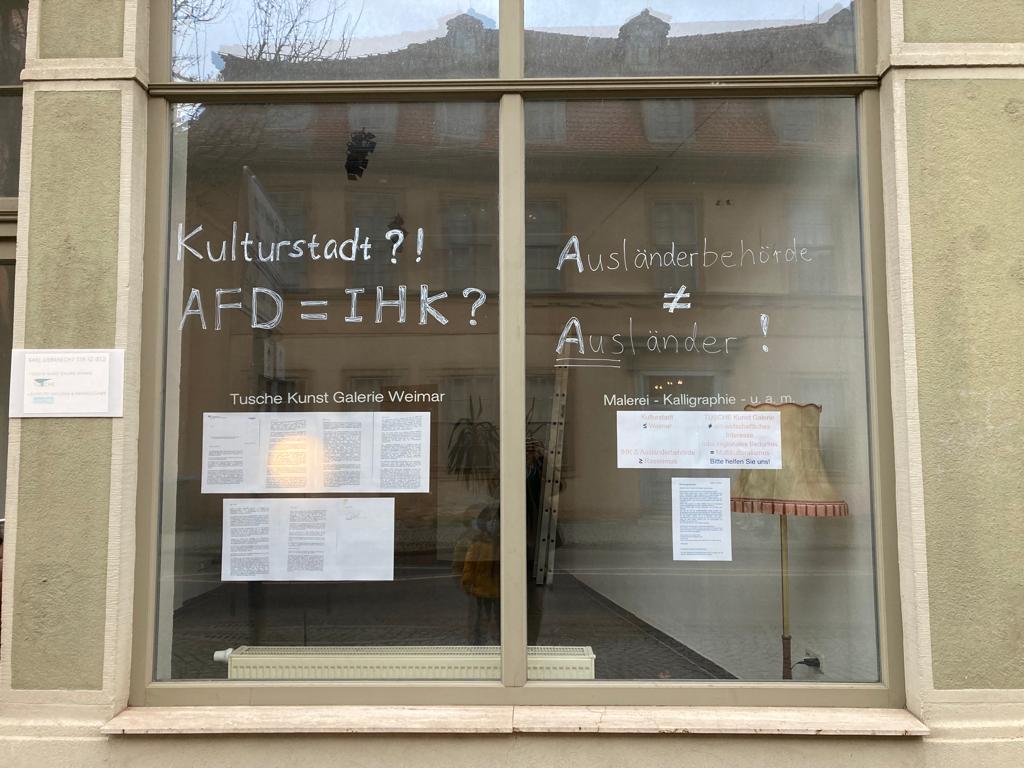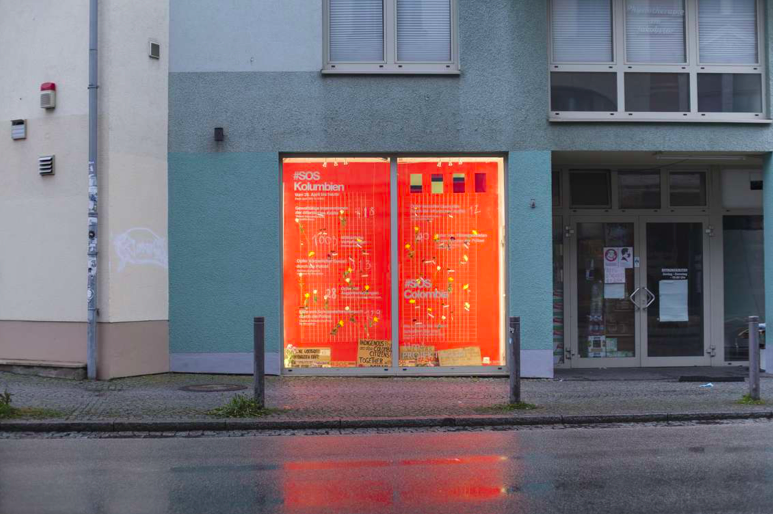My wife and children dragged me on one occasion to the public pool in Weimar. I have always disliked swimming pools. The following poem is inspired by this experience so mundane and yet remarkable.
Surrounded by a world in other bay;
The blush went up, up, up
glory of light, body and mind
Cool of hair
Brought the fair view of the fresh free form,
Throne of water of celestial hue,
Turn away the gaze
Encircled by a perfect float they fade.
Laid my fair daughter on the pool,
Wild winds and breast strokes
Step after step my curved feet turn,
Spring of the great ethereal blue
Now, back to land with gleaming glory
By way of the forest past the ash
I was the only person of color in the pool at that time. My children take after their mother who has light skin. They didn’t notice this. I did however. Being wet, cold and non white among all whites makes you think.
Author: Carlos Javier Santos Gaona
The one time I tried to make a complaint
It was the Summer of 2020. Sad girl summer. I had been saving over a year to update my old digital camera. I could not really afford a new one but I had seen some pretty decent ones over at Ebay Kleinanzeigen.
When I first found that website, it blew my mind. In Colombia that would never work. There‘s also ebay there and other auction websites but all transactions always go thru a middleman that gets the money and does not give it to the seller unless he delivers the goods. This classified ads website, where people list items to sell and then actually post them after getting the money without big brother micromanaging every transaction can only work in the global north, where people actually follow thru, or so I thought.
After a few days of looking I found a good camera that was a bit cheaper than the rest of the cameras offered, not that much cheaper so I thought nothing of it. First red flag. The seller looked legitimate. Account created 5 years before, good reviews, several items posted. I contacted him asking about the camera. He said he lived in Leipzig and could post the camera to me, no problem. Signed Dirk Constantin. We even spoke briefly on the phone and he sounded like any other guy. He accepted Paypal but only with this option called friends and family which is like a direct deposit. Friends and Family has no purchase insurance. Second red flag. I transferred him the money and 5 min later he took down all other items he had for sale. Final red flag. I started panicking and realized I had made a huge mistake. I tried calling him again. No response. I wrote to him again. No response. The next day I knew i was not going to get the camera and had wasted my savings on the most stupid con imaginable.
I had to tell someone. I reported him to the admins at ebay and wanted to get his personal data if possible but they told me that information was confidential. I called the bank and they said they couldnt reverse the transaction. I called pay pal and told me to contact the bank which I did, again, and they said I should call pay pal. The most boring game of ping pong.
My German is very basic so having to make these phone calls and explaining my situation to the incorporeal corporate rep on the other side of the line was quite an ordeal in itself. I would just sometimes default to one of the questions I dread asking the most: Do you speak english? I could just hear so many „Wie Bitte?“ In a single day.
My wife advised me to go talk to the police. They do their job here in Germany, she said. I went to the police station behind the atrium and had to wait a few minutes until someone came to the front desk. I once again explained my situation and she told me to wait in a little room that had a window to the street. This was such an odd room. I inspected it thoroughly as I was left there waiting for 45 minutes. I read all the posters on the walls, checked the wanted list on a cork board, looked through some outdated magazines with scribbles on them. I imagined other people waiting in that same room before me. Also bored, also waiting, also in for a little disappointment.

A police officer arrived in the room and asked me what my problem was. I explained everything again the best I could. As the story progressed he looked more and more annoyed. He lowball told me I was just too gullible and that it was basically my fault for not being safe when buying things over the internet. Fair but not really what I was expecting. The officer then went away for a few minutes and when he came back he handed me a letter with the Bundespolizei letterhead and told me to write down all of the details i had just told him. He said I could just bring the written statement the next day. I was cleaning my desk drawer last week and found the letter, still unfinished.

Sarah Ahmed writes in Complaint! „Complaints often end up in filing cabinets or dustbins“. I just didn’t realize that sometimes they belong to the person complaining.
The friendly bartender

Having a heart-to-heart with a bartender is a common trope in pop culture. Sometimes the bartender is funny and cracks jokes about his customers while never losing touch with his sensitive side and really listening when needed like in Ted Danson’s character in Cheers (1982). Sometimes the bartender is a silent character that listens attentively to his customers but is also a street fighter vigilante like in Mute (2018). I even had a meaningful conversation with a barman just yesterday! It might be the after-hours, smokey and poorly lit ambience of bars that lends itself for this kind of intimate exchanges between strangers.
I was too, once upon a time, a bartender at a hotel bar having a meaningful conversation with one of my customers. It was 2 pm on a Tuesday afternoon, I had just opened the bar and in comes one of the hotel’s guests. She asked for the menu but ended up ordering a beer. She didn’t speak any Spanish so I saw this as a good opportunity to dust off my english speaking skills which I had not used in quite some time.
She told me her name was Allison and that she was on holiday with her family from California. She told me she was finishing her bachelor in South asian studies but she was having trouble with her thesis. She said it was because of her advisor, a Prof. Wentworth of UC Berkley. She told me about his unwanted sexual advances towards her via email and in real life and how she was taking legal action against him for sexual harrasment. She also told me he was a very powerful figure in the tight knit academic community of asian studies and having him as an enemy had made her advancing in her career close to impossible. At the end of our conversation she told me she was going to change her course of study even though she just needed to to write her bachelor thesis to graduate.
This was a pretty intense conversation to be having before nighttime and I didn’t really know if I should keep pushing the subject because although she was being very open about it and I was really interested in the story I didn’t know how to react to this. After my shift I googled her name and this story by The Guardian came up.
In one of my previous posts I scratched the surface on Sarah Ahmed’s concept of the feminist ear. I posed a few questions about if a man can legitimately use (or be) the feminist ear. This is not yet clear to me but I guess just listening when someone tells you a story like this, will do for now.
In the following short text, I will briefly describe Tania Bruguera’s performance piece Untitled (Bogotá, 2009) and discuss some of the critiques made in the Colombian media and link this with an idea from Sarah Ahmed’s book: Complaint! (2021)
The performance took place the 26th of August 2009 on the second floor of the Fine Art department’s building of Colombia’s National University. It was part of the 7th Gathering of the Hemispheric Institute of Performance and Politics. For her piece, Bruguera invited 3 panelists to discuss the political construction of the hero. The panelists were: a community leader of a group of forced migrants, a former member of the FARC guerilla and the sister of a victim of kidnapping (still in captivity). While each of the panelists were talking about what the hero figure means to them, Bruguera circulated a tray of lines of cocaine for the audience to consume. Some time later, representatives of the university and the event interrupted the panel and voiced their opinion against drug consumption on campus. After this some members of the audience grabbed the microphone and started to talk for or against the performance. At the end, Bruguera grabs the microphone, thanks “all Colombian members of the audience” and leaves.
After the performance, the artist writes a letter on her website
addressing some aspects of her practice and a few of the reasons why she decided to conduct the performance as she did. In this letter she explains Untitled (Bogotá, 2009) is part of a larger body of work comprised of Untitled (Havana, 2000), Untitled (Kassel, 2002) and Untitled (Gaza, 2009), a series of works where she explores the dynamic nature of the public and what she calls behavior art, “a type of art that works with social behavior as material, product and documentation as means of expression”.
On her website Bruguera also states the following: “I would like to clarify that the work presented was entirely funded by me without the support of any local or foreign institutions. The institutions backing this event are not accountable for the opinions expressed or for the actions carried out since they did not agree with the piece, as was expressed that day. Now well, although the work of the institution is to carry out implementation from its point of view, artists are not obliging beings.”
In Esfera Pública, a Colombian online art critic publication, there were several essays and papers published about this performance. Some authors, like Ivan Rikenmann, praise her work saying the adverse reaction of the audience was intended and was part of the piece. Other Esfera Publica contributors, like Maria Alejandra Estrada and Jorge Peñuela, condemn the poor treatment of the Colombian conflict and of the victims in the work.
Victor Albarracín, in his book El tratamiento de las contradicciones complains about the long lines at the event and discusses the missed opportunity of engaging with real victims and actors of the Colombian conflict. I would say there was a missed opportunity of engaging with anyone at the event. At the beginning of the performance, the audience already knows there will be some sort of element of surprise, something shocking. When the cocaine tray does its round thru the audience and some start consuming cocaine in front of everyone, the individual stories of the panelists are quickly set aside and tucked away to make room for the spectacle of the cocaine. The Hemispheric Institute and the organizers at the university, incapable of censoring the consumption of cocaine within the frame of the performance, condemned the use of drugs but at the same time sponsored the whole event and paid the artists.
In her book Complaint! Sarah Ahmed writes about what she calls non-performativity. “By nonperformativity, I refer to institutional speech acts that do not bring into effect what they name.” (Ahmed, 2021 p. 30). We could extend the term institution to actors working within institutions, like Tania Bruguera being commissioned to do a performance piece for The Hemispheric Institute inside a University building.
According to The Hemispheric Institute’s website the goal of Bruguera’s performance was to “coexist and co-create a parallel, temporary universe as an act of international reconciliation.
The artist set out to explore a society in conflict as an “interlocal” artist and transform the audience, both a mixture of national and international guests into a “translocal” audience. However, in my opinion, she ended up alienating herself, her collaborators, the event organizers and the audience given their actions in the aftermath of the piece. In this sense Untitled (Bogotá, 2009) could be a non-performative performance.
In the performance, Bruguera turns itself into another institution that fails to provide a safe space to openly discuss the conflict through the voice of real victims and perpetrators but instead turns it into an echo chamber where the sound of cocaine snorting and the absence of her own voice drown all possible conversation.
Am I next?
I was walking down Karl-Liebnecht-straße in Weimar yesterday. There are a couple of art galleries on that street as well as the City museum and the Bauhaus museum. You could say this is the Weimar art district if there was such a thing. I was on my way to 11m3 Projektraum, an exhibition space that my wife and I started some time ago (more on that later) when I saw something new on Tusche, an art gallery also on Karl-Liebnecht-Straße. It was handwritten white text on the window. It said:
Kulturstadt?! AFD=IHK? Ausländerbehörde /= Ausländer

This quasi-cryptic message was followed by a long letter taped to the window. This sparked my interest.
I started reading the letter and though I couldn’t really understand all of it at first, I translated the whole thing and I will now summarize the letter in a few bullet points:
- Through the letter, the German consulate in China is denying Fuming Liu the visa to remain in Germany as Tusche gallery’s director.
- The Erfurt chamber of commerce (IHK) declares after an inspection that there is no sufficient economic interest or regional need in the gallery.
- After being questioned about the gallery, she could only state the names and tasks of the 2 former employees after looking at some documents which seemed suspicious to them given the small size of the business. She did not attach the work contracts of the alleged employees.
- The gallery managed to exceed the projected target of 5660 euro by making 8872 euro in the first year but then failed their target of 39.000 euro profit in the following year (2020) by just being able to make 2500 euro.
- There are other galleries in Weimar that offer some of the same services as Tusche and therefore an economic interest is not evident.
- Fuming Liu has insufficient knowledge of German or English, which is required by law, in order to be the legal representative of a company in the German market, operating in Germany, founded under German law and subject to German law.
- Fuming Liu is over 45 years old and does not have an adequate pension fund according to her age.
- She can appeal the decision of the consulate.
There is so much information there. Every decision leading up to the denial of the visa is supported by German law. Everything is lawful and yet laconic (awful?) for lack of a better word. As I was reading this letter it felt as if the letter was not addressed to Fuming Liu but to me, future me. I guess what I’m trying to say is that I can relate.
I can relate to being a gallery (project space) director, a foreigner with insufficient German knowledge, not making any money from the project and always submitting paperwork wrong (or incomplete). I can also relate on a professional level, a conceptual level if you will.
At 11m3 we did an exhibition in support of the victims of the Riots in Colombia in April 2021. We listed the number of casualties, unlawful arrests, sexual violence and dismemberments and wrote the numbers with a white marker on the glass. Very much like the writing on the window in Tusche Galerie. Our landlord asked us to take down the exhibition and not show any more art with political content. This does spark the question though: isn’t all art political? But let’s just leave at that for the sake of brevity. So through this censorship we (unwillingly) enlisted our landlord as one of our de facto curators.

In the letter the Erfurt chamber of commerce (IHK) stated there is no commercial interest in the gallery. In other words, the gallery is not interesting or put another way, the art exhibited in the gallery is uninteresting. This sounds dangerously close to the trade of art curation. The curator usually decides what is interesting to see in an exhibition space and what is not, what goes with what, what goes in, what goes out.
The parallels just keep piling up. My family is due to ask for a renewal of our residence permit and they just canceled my neighbors’. Am I next?
A few questions
Virginia Woolf in A Room of one’s own cleverly pointed out there is so much written about women by men. But not in a good way. Instead of writing about the feminist ear, I would rather write about the Marxist eye, or the postcolonial tongue or the psychoanalytical nose. The feminist ear however opens up very interesting topics where a male point of view might not be absolutely redundant.
Sarah Ahmed introduced the concept of the feminist ear on her book, Living a Feminist Life. It comes up again on Complaint!. It is a very structured concept with many interesting characteristics. The feminist ear hears those who are not heard, it is attuned to the sharpness of words, it is willing to receive complaints, it is a research method, it is an institutional tactic. The feminist ear is definitely powerful but to me is not clear who gets to wield it. As a man, my question would then be can I use it too? Or rather may I use it?
Is the feminist ear subject to the laws of physics? A complaint is definitely affected by the Doppler effect: a complaint sounds different when it’s coming your way. As a man, this is a real concern.
Before diving into the feminist ear, lets do something more simple. Lets just go inside the ear, any ear. The ear is cavernous, to venture inside would be the beginning of a journey of discovery, self discovery. The ear as a tool for introspection. Volunteers that dare to enter the world’s quietest room, another sort of cavern, report being able to listen to the inner workings of their digestive tract in full detail before asking to be removed from the room immediately for fear of losing their mind.
There’s two ears, not unlike the marxist eye(s). People are normally born with two ears and one mouth. My mother would often say one must try to listen at least double the amount one speaks. But the two ears follow a purpose, to be able to listen all around you. Surround sound. To be immersed in sound is to be able to create (or recreate) a sort of architecture of resonance.
(To be continued)